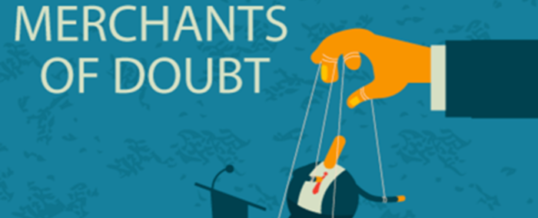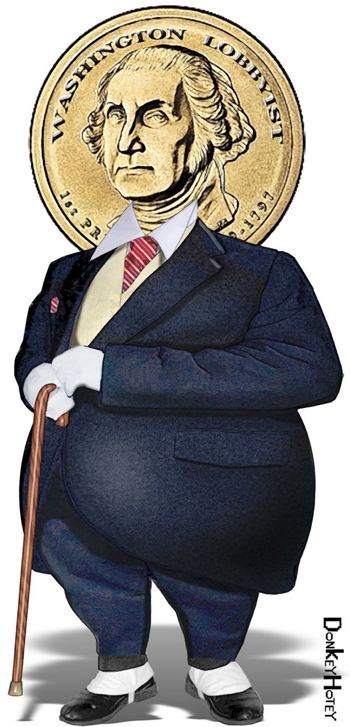IGC takes on “The Merchants of Doubt”
December 3, 2019

BY JENNIFER BROUSSEAU AND SAM SILKNETTER
It was to shocking to learn just how influential the “Merchants of Doubt” (MOD) have been in shaping policy and public sentiment for over 40 years. What was even more stunning was discovering that the entire premise of Naomi Oreskes’s book by the same name remained unknown to the general public until 2005. Both the book and the adapted documentary center around ‘scientists’ (the merchants) who left their fields of expertise to spread doubt regarding the consensus of scientific issues such as the link between cigarettes and cancer and between fossil fuels and climate change. They instigated polarizing and heavily politicized debates using a myriad of tactics to refute consensus issues and take advantage of the public’s perception of scientific expertise. They circulated their denialist material through mass media, and thus were able to reach the public far more effectively than the authentic scientists who primarily published in peer-reviewed journals.

In our recent IGC seminar, we discussed the main points presented in the documentary and reflected on how to evaluate scientific material and approach a scientific issue from a different perspective. Dr. Jeff Walters first discussed the IGC’s background with MOD and Naomi Oreskes’s visit to Virginia Tech in Fall 2015, during which she discussed her and Erik Conway’s mutual discovery of the MOD. We also read a commentary article from Nature, in which the author makes a case for dams as a potential solution to climate change. While it reads like peer-reviewed science, this format of article is only reviewed by editors, and the author turns out to have a financial interest in promoting dams to mitigate the effects of climate change. Our seminar discussion underscored the need for consumers of scientific material to maintain some healthy skepticism and showed how disingenuous arguments may persist in science.
As part of our discussion, we tried to understand the perspectives of different stakeholder groups, including climate science experts, consumers of science material, journalists reporting on the debate, consumers of the climate denialist material, and climate denialists and corporate interests/think tanks. Early in the semester, we were given the advice to try to take a ‘devil’s advocate’ stance when our discussions seemed to be informed from a single, liberal, or academic worldview. It is common to find yourself among like-minded individuals in a program such as IGC, and we were intentional in trying to see this issue from a new angle. Getting to role-play as stakeholders was helpful to check our biases. It also led to a greater sense of empathy, especially for those who unwittingly consume denialist material.
It is tempting to simplify the facts of this ‘debate’ to good (i.e. climate science community) versus bad (denialist) or right vs. wrong. However, these simplified stances are not enough to explain or understand what people believe. Some denialists act deliberately as bad actors, but do the consumers of that material deserve that label? We think not and propose that as good scientists we should think about creative ways to engage the public at large and earn their trust.
As we continue our training in the IGC, it is important to recognize the role of honesty and legitimacy in our work. We must call out denialism when we see it, and we must make an effort to convey the significance of scientific consensus to the public. Transparency is important, but we must also engage the public with our science and give them a reason to have faith in the scientific process. Skepticism and controversy will always be present as we continue to make scientific progress, but that should be a sign of a healthy discourse, not a reason to doubt it.






